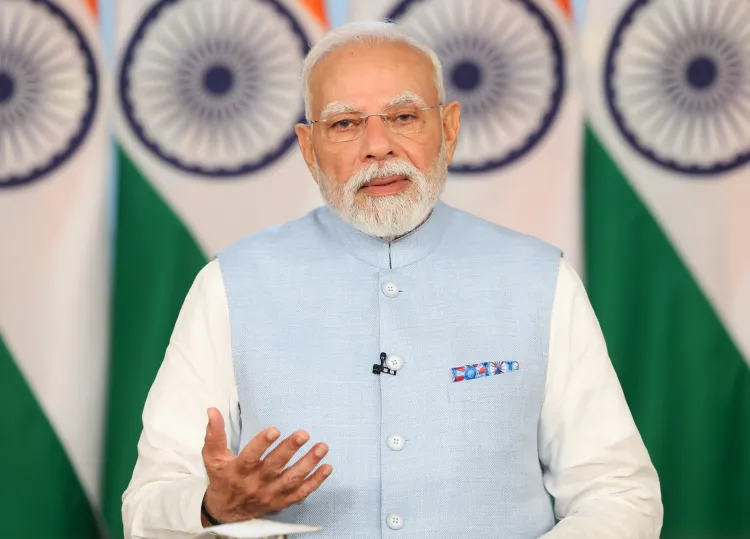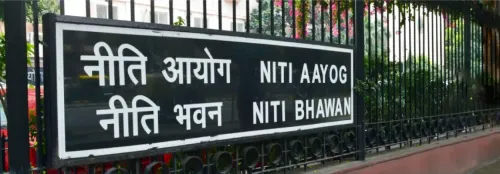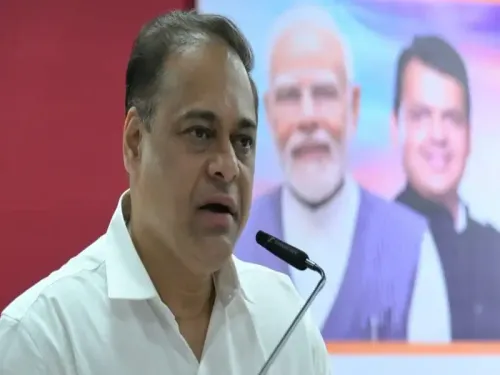How Did Foreign Companies Find It Cheaper to Ship Goods via Europe?

Synopsis
Key Takeaways
- GST simplified the tax structure in India.
- It enabled smoother interstate trade.
- Lower costs for businesses benefited consumers.
- GST replaced numerous overlapping taxes.
- It was a significant economic reform for India.
New Delhi, Sep 21 (NationPress) Prime Minister Narendra Modi on Sunday highlighted the complexities of India’s tax structure prior to 2014. He shared an instance where a French company found it more economical to ship goods from Bengaluru to Hyderabad via Europe rather than transporting them directly between the two state capitals.
He explained that this absurd scenario arose due to a convoluted system of taxes, tolls, and checkpoints, which made domestic commerce both expensive and inefficient.
"At that time, many businesses and countless citizens faced daily hardships because of this intricate system," PM Modi noted while addressing the nation ahead of the launch of GST 2.0 reforms on Monday.
He added, "The additional expenses incurred while moving goods from one city to another ultimately impacted lower-income families and everyday consumers."
PM Modi emphasized that upon taking office in 2014, the simplification of India’s tax system was made a top priority.
"We prioritized GST in the interest of the public and the nation. We engaged all stakeholders, resolved every state’s concerns, and found solutions to every issue. By uniting all states, India’s most significant tax reform became achievable," he stated.
The Prime Minister underscored that the implementation of the Goods and Services Tax (GST) liberated India from numerous overlapping taxes, establishing a uniform system nationwide.
Describing it as the realization of the vision of 'One Nation, One Tax', he noted that GST has revolutionized the business landscape and improved India's logistics efficiency.
"Previously, the nation was ensnared in a tax web. Today, thanks to GST, we possess a unified market. Goods can flow seamlessly across states, industries can reduce costs, and citizens enjoy lower prices. This embodies the strength of ‘One Nation, One Market’," PM Modi remarked.










